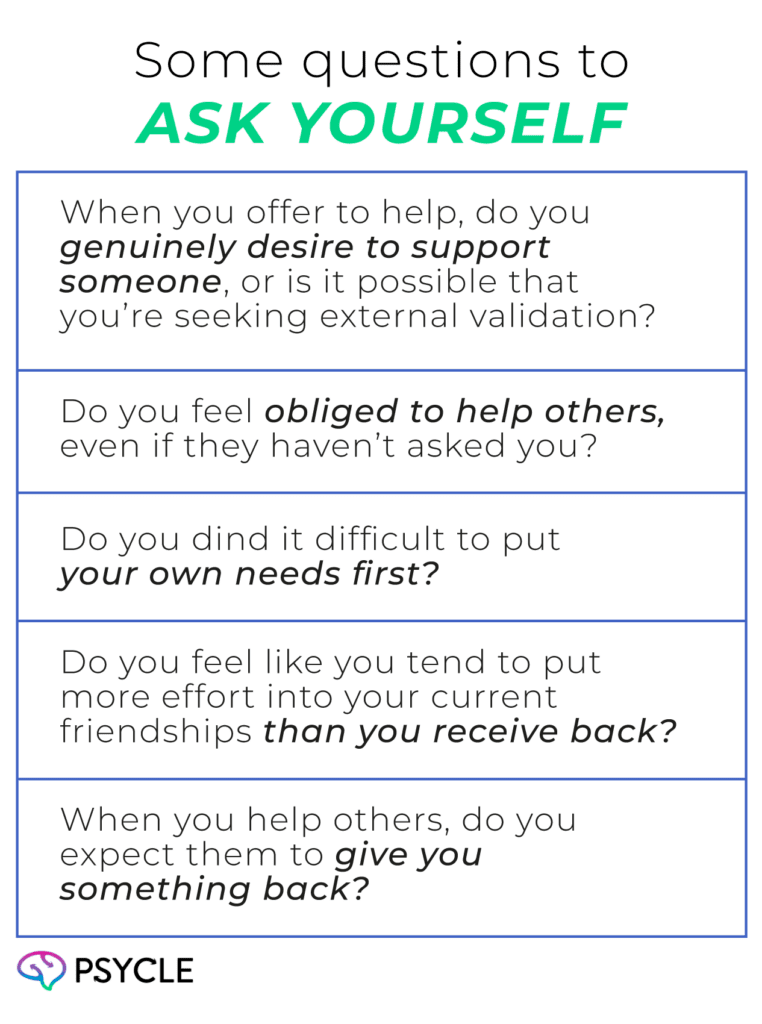Do you often offer support to others but never seem to receive the same in return? It can be incredibly disheartening to feel alone and unappreciated despite your efforts to help those around you. However, the solution isn’t to stop supporting others, but instead be more mindful about who and why you’re helping while upholding clear boundaries.
Key Takeaways
- Develop self-awareness by reflecting on your motivations for helping others and setting clear boundaries to maintain healthy relationships and avoid feeling depleted.
- Communicate your needs assertively and seek support networks with shared values to foster balanced relationships where mutual respect and support are prioritized.
- Prioritize self-care and recognize your worth by setting limits, practicing patience, and surrounding yourself with supportive people to maintain a healthy sense of balance in your life.
Reflect on Your Motivations and Patterns
Developing self-awareness is an essential first step in understanding why you may find yourself always helping others but struggling to receive help in return. Explore your motivations for helping others and behavioral patterns that could contribute to this feeling of always helping but getting nothing in return.
Through this reflection, you can consider the source of your feelings. Do they stem from unhealthy relationships and a lack of mutual respect? Or could your own insecurities and expectations be playing a role? It’s possible that both factors contribute to this dynamic.


Set Clear Boundaries
Setting clear boundaries is crucial for maintaining healthy relationships. When you consistently help others without establishing limits, it can lead to feeling overwhelmed and depleted. Learning to say “no” when necessary is an essential skill that allows you to protect your time and energy.
Establishing boundaries involves understanding your own limits and communicating them effectively. It’s important to recognize that saying “no” doesn’t make you selfish or uncaring. Instead, it enables you to prioritize your well-being and ensure that you have the capacity to support others effectively.
Communicate Your Boundaries
Once you’ve identified your boundaries, it’s crucial to communicate them to others. Clearly express your needs and limits by using assertive communication, which involves being direct yet respectful. You can use “I” statements to express how certain actions or requests impact you personally. For example, instead of saying, “You’re always demanding too much from me,” try saying, “I feel overwhelmed when I take on too many tasks at once.”
om me,” try saying, “I feel overwhelmed when I take on too many tasks at once.”
People may test or push against your boundaries, especially if they are accustomed to you always saying “yes.” Stay firm in your limits and reinforce them when necessary. Over time, as others come to understand and respect your boundaries, you’ll find yourself experiencing greater balance and well-being.
Communicate Your Needs
Supporting a friend might clash with your own needs. They might ask for your company when you need solitude, or request help when you’re already busy. When communicating your boundaries, be clear and specific. Explain why you can’t help at the moment. This helps your friend understand and respect your limits.
You should also listen to the needs of your friend, and let them know that you understand why they may be requesting help. You may be able to find a middle ground where both of your needs can be accommodated. However, if compromising, still remain clear on your boundaries.
Foster Balanced Relationships
In a healthy, balanced relationship, both parties should feel comfortable expressing their needs. This involves both asking for help and being able to express boundaries and say no when necessary.
The dynamic should feel recipricol, with both sides activley participating in offering support. However, this doesn’t mean you should expect help in a give-and-take manner, help should be offered out of genuine care, not just expectation.
Find Support Networks
When you feel alone and unsupported, seeking out support networks and communities with shared values can be incredibly beneficial. These networks provide a sense of belonging and understanding and offer the support and validation you need to thrive.
Support networks can come in various forms, ranging from local community groups to online forums and social media communities.
Shared values play an essential role in support networks as they create a foundation of common ground and mutual understanding. Connecting with individuals who share your values and beliefs makes it easier to build meaningful relationships and offer genuine support.
Prioritize Self-Care
When you constantly find yourself helping others without receiving much in return, it is crucial to prioritize self-care. By focusing on your own well-being, you can prevent burnout and maintain a healthy sense of balance in your life.
Self-care involves taking deliberate actions to care for your physical, mental, and emotional health. It means dedicating time and energy to activities that nurture and replenish you. Prioritizing self-care is not selfish; it is an essential aspect of maintaining your overall well-being.
Practical Self-Care Tips
Here are some practical self-care tips that can help you prioritize yourself:
- Set aside dedicated “me time” for activities that bring you joy and relaxation.
- Engage in regular exercise and nourish your body with nutritious food.
- Practice mindfulness and meditation to calm your mind and reduce stress.
- Schedule regular sleep and ensure you get enough rest.
- Engage in hobbies or activities that allow you to express yourself creatively.
- Connect with loved ones and nurture meaningful relationships.
Recognize Your Worth
Acknowledging your worth empowers you to set healthy boundaries and advocate for yourself in relationships. You understand that your time, energy, and emotions are valuable, and you’re assertive in communicating your needs and expectations to others.
Some tips for helping recognize your worth are:
- Practice Self-Reflection: Set aside time regularly to reflect on your strengths, achievements, and values. Recognize your unique qualities and the positive impact you have on others.
- Challenge Negative Self-Talk: Pay attention to your inner dialogue and challenge negative thoughts or beliefs about yourself. Replace them with affirmations that reinforce your worth and capabilities.
- Set Boundaries: Identify your limits and communicate them assertively to others. Respect your own needs and priorities, even if it means saying no to others’ requests.
- Celebrate Achievements: Acknowledge and celebrate your accomplishments, no matter how small they may seem. Celebrating milestones reinforces your sense of self-worth and motivates you to pursue further growth.
- Surround Yourself with Supportive People: Surround yourself with individuals who uplift and validate you. Cultivate relationships with friends, family, or mentors who appreciate and affirm your worth.
Practice Patience
In our interactions with others, it’s important to recognize that individuals may have their own unique challenges and limitations when it comes to offering support.
Patience is a virtue that allows us to approach situations with understanding and empathy. By cultivating patience, we can give others the time and space they need to navigate their own struggles and find the capacity to reciprocate support. Sometimes, it may take longer for them to do so, but demonstrating patience can contribute to fostering deeper connections.
Conclusion
Prioritizing self-care while supporting others is crucial in finding balance in relationships. When you prioritize your own well-being, you can better nurture others without depleting yourself. If you feel like your helping others with no return, first reflect on where these feelings come from then consider your needs, the nature of your relationships and practice of self-care and patience.
FAQs
How Can I Effectively Communicate My Needs to Others?
Clearly express your needs to others so that they understand what you require. Effective communication fosters mutual understanding and helps create more balanced relationships.
How Can I Foster Balanced Relationships?
Create an environment of mutual support and reciprocity. Seek out relationships where both parties can give and receive support equally. This balance is essential for healthy connections.
How Can I Set Clear Boundaries to Prevent Burnout?
Learn to say “no” when necessary and establish limits on how much help you can provide without depleting yourself. Setting boundaries is essential for maintaining a healthy balance and avoiding burnout.

